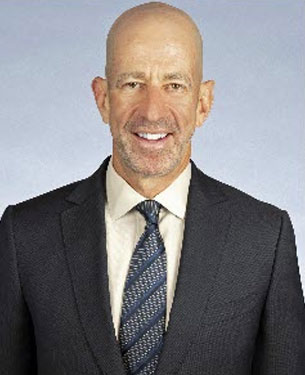
Protecting the Family Nest Egg
By Bernard A. Krooks, Certified Elder Law Attorney
Although we sometimes hate to admit it, we are growing older. Life expectancies today are much greater than they were even a few decades ago. While this may seem like good news to many of us, it may actually create some additional “headaches” if we don’t plan properly for our golden years.
In the current economic client and the increased volatility on Wall Street, many are concerned that they will outlive their retirement nest egg. This subject has been the focus of numerous articles and commentaries. However, the greatest threat to the nest egg of seniors is the cost of long-term care. One consequence of our increased longevity is that we are more susceptible to chronic illnesses during our lifetimes. In fact, over two-thirds of Americans 65 years of age and over will eventually require some form of long-term care. This care can be nursing home care, assisted living care, or in-home care. Whatever the setting, the care is extremely expensive and can deplete a family’s hard-earned savings. In the New York metropolitan area, long-term care costs in a nursing home can exceed $20,000 a month. Care at home or in assisted living is also very expensive.
Consider the case of Richard and Nancy who have been married for 50 years. They own a house and have savings of $500,000. Richard collects monthly Social Security benefits of $1,800 and he has a modest pension of $900. Nancy receives $800 in Social Security benefits. Richard has advanced dementia and needs nursing home care. The nursing home’s monthly bill is $20,000.
Richard and Nancy cannot afford nursing home care. At an annual cost of $240,000, they will be broke in about two years. Sooner or later, they will be forced to rely on Medicaid to help pay for Richard’s nursing home care. Moreover, Nancy would be forced to apply for public assistance for herself after spending all their money on Richard’s care. Nancy wonders what can be done without decimating the savings it took over 50 years to accumulate while keeping a sufficient income to maintain her independence.
Unfortunately, Medicare coverage of long-term care is extremely limited and subject to significant restrictions. Thus, if one of us or a loved one gets sick and requires long-term care we must either pay out-of-pocket or rely on Medicaid. One way to minimize the burden of paying out-of-pocket is to purchase long-term care insurance. This can help assist with the cost of care at home, in assisted living, or in a nursing home. However, this type of insurance must be purchased in advance and many seniors do not qualify due to pre-existing conditions. Of course, those of us who are healthy enough and who can afford long-term care insurance should certainly consider this when doing our own estate planning. If you look into long-term care insurance, it is very important that you work with advisors who are familiar with the current products on the market since much has changed in the past several years.
Seniors with acute care needs receive generous insurance benefits from Medicare. A senior who needs surgery can rely on Medicare. Conversely, a senior who has chronic needs due to dementia, Alzheimer’s, or Parkinson’s disease will soon discover that Medicare benefits are very limited.
Thus, seniors are often forced to rely on Medicaid to pay for long-term care. It is critical for many individuals to plan ahead to qualify for Medicaid to pay for their long-term care.
Many confuse Medicare and Medicaid. Medicare is the federal insurance program covering those 65 and older. Medicare pays for a very limited amount of nursing home care and does so only if the patient is receiving skilled nursing care. In some limited circumstances, Medicare will pay for up to 100 days of skilled nursing care, provided that the patient meets Medicare’s requirements. In any event, Medicare will pay only for the first 20 days in full; thereafter (days 21-100) a co-payment of $204 per day is required. Thus, Medicare is simply not a viable alternative for those in need of long-term care.
Medicaid is a jointly-funded federal and state program that pays for nursing home care for seniors. However, there are strict income and asset guidelines that must be met in order to become eligible for benefits.
Medicaid planning is similar to tax planning. Many wealthy individuals take steps to reduce their tax liability by using the tax rules to their benefit. The same principle applies to Medicaid planning. You can preserve assets provided that you comply with the Medicaid rules. Learning about these rules can help families from losing virtually their entire savings to pay for long-term care.
Bernard A. Krooks, Esq., is a founding partner of Littman Krooks LLP. He was named 2021 “Lawyer of the Year” by Best Lawyers in America® for excellence in Elder Law and has been honored as one of the “Best Lawyers” in America since 2008. He was elected to the Estate Planning Hall of Fame by the National Association of Estate Planners & Councils (NAEPC). Krooks is a past Chair of the Elder Law Committee of the American College of Trust and Estate Counsel (ACTEC). Mr. Krooks may be reached at (914-684-2100) or by visiting the firm’s website at www.littmankrooks.com.